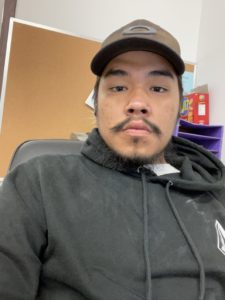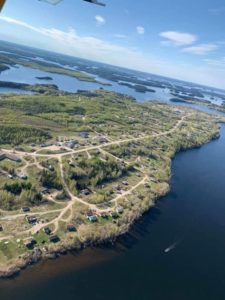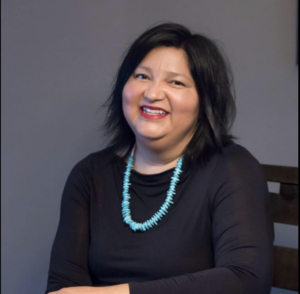Celebrate and Learn More About The People and Programs Advancing Indigenous Children’s Rights
On National Indigenous Peoples Day, we celebrate the heritage, diverse cultures and outstanding achievements of First Nations, Inuit, and Métis peoples across what is currently called Canada.
Today, we are shining a light on the National Reconciliation Program (NRP) and the Indigenous communities we work alongside.
Jennie Hissa, Training and Community Specialist with the NRP, shares how our partners are all community-focused and resilient organizations;
“The relationship we have with our partners is built on a sense of respect and trust. This type of relationship is key to working towards a reconciled Canada. The organizations and individuals the NRP works with, who you will meet below, make tremendous positive changes in the lives of children and their families across Canada.”
Kenora, a small town of just over 15,000 people, is located at the furthest west point of Ontario, close to the Manitoba border and the end of the Trans Canada Highway. The Kenora Chiefs Advisory (KCA) is an alliance of independent, participating First Nations, operating since 1995. KCA provides programs and services to the First Nations in health, education, and social care in a holistic way, while upholding the Anishinaabe culture and tradition. KCA has been a significant partner with the NRP for over five years. Both organizations have mutual respect, understanding, and a shared ambition to advance the rights of Indigenous children.
Rodney Bruce, Wabshke Binassi Niindizhinikaaz. Biizhew (Lynx) Niindoodem, Asubpeeschoseewagong (Grassy Narrows) nindooji is the team lead for the First Nations Climate Change Adapt Program (Aakozi’ma’gut Nii’maa’ma’anun) with KCA.
Rodney works closely with the community to help address the impact of climate change, he says,
“Climate change is an ongoing issue throughout mother earth. You see the way the community is being impacted through health, migration patterns, community infrastructure, and traditional/cultural ways of life. Through our project, we help identify these issues through concept mapping, community stories, experiences and statements.”
Lynsey Kapera also works for KCA and echoes her colleague,
“What I do is I collect information from people in the communities on how their community has changed through the years. Working for this program has really opened my eyes to all the changes that have been done from climate change.”
Much like Rodney and Lynsey, Ethan Woods of Four Arrows Regional Health Authority, in Winnipeg, Manitoba, works closely with the community around issues of climate change. Ethan is responsible for delivering programs to youth.

“We’ve helped children as young as five years old understand their feelings and themselves. That it’s okay to not be okay and to talk to someone about it and to act accordingly and not aggressively” – Ethan Woods, Four Arrows Regional Health Authority.
Four Arrows Regional Health Authority delivers programming in four island lake communities across northeastern Manitoba. Since COVID-19, Ethan has noticed changes in the community that affects his work, he said,
“Recently, there has been a huge spike (of cases) among young teenagers. The pandemic has brought a lot of challenges to our community. Now that some restrictions are being lifted, most of these challenges will go away, and we will need to tackle the other challenges that are still with us.”

Ethan’s work with youth is invaluable as it sets the tone for future leaders within the community.
Alexandra David, Karakwiiostha (she makes the moon shine in the winter time) supports grant management and finance with the organization Ohero:kon. Ohero:kon prides themselves on being a grassroots, community-based Indigenous organization driven by progressive ideas, bold actions, and a strong foundation of cultural support.

“The mission of Ohero:kon is to continually develop a cultural intervention for our youth to nurture their transition into adulthood in a good way, guided by a caring community of youth and Elders through ceremony, ritual and teachings. We have been witness to many miracles along this 18-year journey. To see past initiates come back into the work as mentors solidifies our hopes that they are becoming our next generation of teachers” – Alexandra David Karakwiiostha, Ohero:kon.
Ohero:kon has partnered with NRP since 2019. Our collaboration fosters the growth of youth through age-appropriate, culturally-based teachings and activities nurturing the emotional and physical well-being of Onkwehonwe (Indigenous) youth, their families, and communities.
In 2017, the NRP launched under the Save the Children umbrella to reaffirm the organization’s commitment to Indigenous children, and contribute to the Truth and Reconciliation efforts in Canada. As Canada moves towards reconciliation, we are reminded of the critical work that must be done.
Alexandra from Ohero:kon states it very eloquently, “One of my teachers once told me, to have reconciliation means there was a relationship to begin with…. to assume you can reconcile before a relationship is built is backwards. We need to begin to build those relationships first.”
While progress is slowly being made, there is far more that needs to happen. Recently the Canadian government passed Bill C-15 to ensure all the necessary measures are taken to guarantee Canadian law is consistent with the United Nations Declaration on the Rights of Indigenous Peoples (UNDRIP). This was a long-anticipated move and something the NRP had already developed a framework to implement alongside our partners.
Today as we recognize and celebrate the vibrant culture, diversity, and contributions of First Nations, Inuit, and Metis peoples across what we now call Canada, it is an opportunity to acknowledge and learn more of our true and shared histories. We remember that Indigenous communities, knowledge and cultures continue to revitalize and thrive, despite centuries of oppression.
Here are some ways you can learn more and celebrate these cultures:
Take the time to learn more about the land on which we live, the agreements between settlers and Indigenous peoples that are treaties, and the history. Look into some history books here: https://ravenreads.org/blogs/news/canadian-history-books-by-indigenous-authors
Reflect and engage with your friends and families in hard but necessary discussions about colonialism and reconciliation.
Enhance your reading list with works by Indigenous authors and poets. Check out the Toronto public Libraries list of upcoming books for all ages: https://torontopubliclibrary.typepad.com/bookbuzz/2021/01/upcoming-indigenous-books-new-year-edition.html
Support Indigenous businesses. Check out a listing here: https://shopfirstnations.com/
Donate to the work, like KCA’s Ma’mo’weh Wii’soo’ka’tiwin Foundation https://www.kenorachiefs.org/mamoweh-wiisookatiwin-foundation/donate/
Remember to Celebrate! But not only today, all year round. Try attending some online events. Check out APTN’s line up here: https://www.indigenousdaylive.ca/
The ways to support and celebrate do not stop here! You can keep researching and find many ways to be more involved and engage. Let’s keep working together towards renewed relationships!


